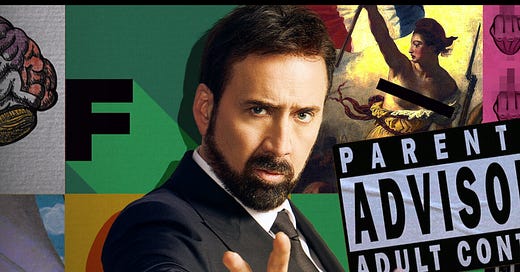Evangelical Word of the Week
“Christian Exceptionalism”
“Exceptionalism” is a word that is frequently heard in the context of nations. It is a word that is often attached to the word “American”. Politicians and others in the United States can be harshly judged if they claim in any way that the United States is not the “best”. We don’t often hear the word exceptionalism attached to Canadian identity (except that we are sometimes proud of being “not American”). Canadian politicians are mostly not expected to say that Canada is the best country in the world. Perhaps one of the things that we would describe with the word exceptional in Canada is hockey.
Evangelical Christianity can often suffer from “Christian Exceptionalism”. This is the idea that Christians are somehow better than others.
The most vivid and terrifying expression of Christian Exceptionalism comes from particular ways of understanding eternity. The belief that some people live forever in heaven, but most people don’t make that cut, and the ones who don’t make the cut are the ones unlike us, and they all wind up either just gone forever or worse, in eternal torment, is about the most “exceptional” way of seeing things possible. I suppose you could argue that it is God who is exceptional and I would be with you on that. The heart of God’s exceptional nature, however, is that God has chosen to be with us, not apart from us.
Exceptionalism can feel good, but at its base it is always a failure. It does not call us to look at the reality of who we are. It does not call us to seek to understand those who are not like us. Christian theology at its best ought to move us to see that we stand on the same plane as all others. It ought to help us to know what we have in common with all others, not what makes us different.
Any understanding of faith that makes its adherents exceptional, that sets them not with, but apart from, almost all other people will, in the end, be shown to be a pale reflection of true hope and life.
A “Haven’t Seen it Yet” Review
You may be well aware from religious and political history, including evangelical history (also social media history), that it is apparently perfectly appropriate to make judgments on things that you have not actually seen.
I haven’t seen it yet, but I am looking forward to “History of Swear Words”, a documentary on Netflix hosted by Nicholas Cage. Apparently swearing is good for you.
I heard Eli Glasner talking about the documentary on CBC Radio. He said that researchers have determined that if you are holding your hand in freezing water you can hold your hand in that water for fifty percent longer if you are swearing as you do so.
I remember years and years ago when I was a young evangelical I came across an article in a satirical Christian magazine that grouped Christians according to what profanities they were willing to use. There were “darn” Christians, “damn” Christians, “shit” Christians, and even “fuck” Christians. I showed my wife, Jennifer, the article and we kind of smiled at it, but I remember that we both thought that it was maybe not possible to be an “f” Christian. We were shit Christians at the time.
The documentary, that I have not seen, points out that swearing can actually be good for relationships and that it is often a way that people can express the intimacy of friendship and shared identity.
When I was growing up in the evangelical church I was taught that swearing was automatically wrong. Passages of the Bible said that there should be no “coarse joking” among people of God. I came to learn later that what this actually meant is that even in joking we should not hurt one another, not tear one another down.
When I was a pastor, I often joked that I was going to write a book called “Ten Thousand Ways to Say ‘F You!’” What I was getting at was that in terms of tearing people down you might hear language, even in the church foyer, that was way worse than the “f” word. We can hurt one another proficiently with socially acceptable words and a smile on our face. I came to learn that I had heard (and said) worse than the “f” word in many settings. Language can be coarse and destructive, even when it is not profane.
Anyway, if you watch the documentary, can you tell me what you think about it?
You could maybe even do a “Have Seen It Review”.






Looking forward to your book. Ten thousand ways to....
The “f” word comes well-disguised.